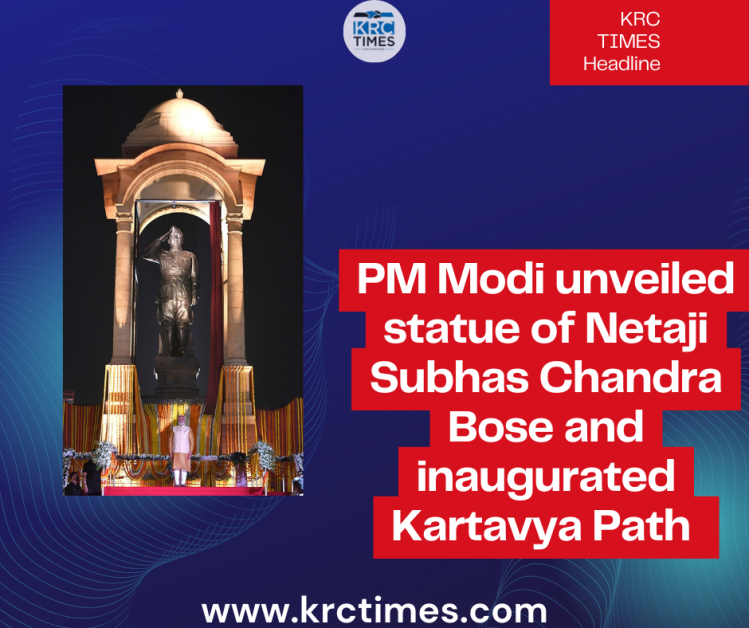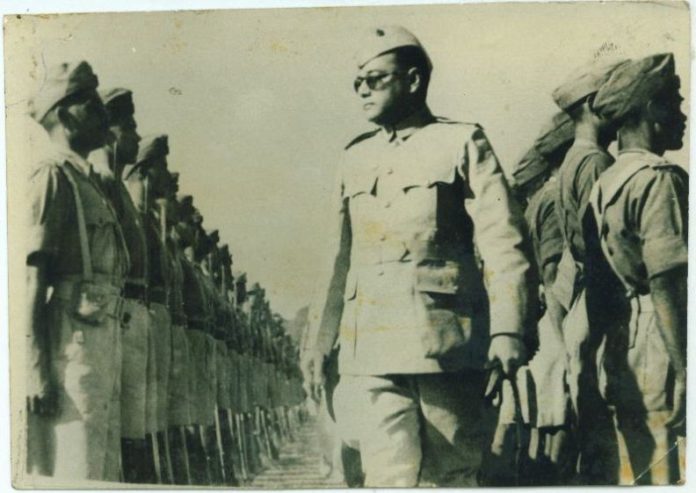That is when Atlee told him there were numerous reasons, but the most important one was Netaji’s activities, the INA and its fight against the British besides the nationalism that it evoked in the British Indian Armed forces

NSA Ajit Doval’s repeated reiteration of Netaji’s role in hastening British exit from India is an attempt at appropriation of Subhash Chandra Bose and his legacy for the BJP. He has dug into history and repeated what Clement Atlee, Prime Minister of Great Britain at the time of India’s Independence had revealed during his visit to India in 1956. Earl Atlee had told the then acting Governor of Bengal that the British departure from the country was hastened by the activities of the INA and the nationalist fervor it injected into the Armed forces.
It seems, Clement Atlee who was Prime Minister of Great Britain when India became independent came on a visit to Kolkata in 1956 and stayed there for two days as guest of Governor West Bengal. The Governor at that time was Phani Bhushan Chakravarti, the first Indian Chief Justice of Bengal who was at that time acting against the post. He had a lengthy conversation with Atlee during which he happened to have asked the latter what was the reason for the uncalled-for haste for the British exit from India, particularly when there was no compelling ground. There was no anti-British movement and the last one, the Quit India Movement, had petered out.
That is when Atlee told him there were numerous reasons, but the most important one was Netaji’s activities, the INA and its fight against the British besides the nationalism that it evoked in the British Indian Armed forces.
Atlee had in mind the naval mutiny of Karachi and Bombay, the Army rebellion of Jabalpur and stray rebellious incidents in the Royal Indian Air Force. His contention was that with the erosion of the loyalty of the Indian Armed forces for the British Crown, it was felt, it would be difficult to keep the country within the Empire.
Asked whether the non-violent resistance led by Mahatma Gandhi had anything to do with the hasty withdrawal of British from the country, Atlee replied, pronouncing each syllable separately with a disdainful smile, “minimal”. If one goes by what Atlee is reported to have told the then acting Governor of Bengal it was in no way the Indian National Congress’s non-violent resistance led by Mahatma Gandhi that forced the British to withdraw from India.
By making a mention of Late Earl Atlee’s statement Ajit Doval was only responding to the repeated claims of Rahul Gandhi that if the Congress could win independence from the British it could certainly take on the BJP at the 2019 elections which was then yet to take place. The results of it, however, were so dismal for the Congress that Rahul had to give up his President’s post. In any case, it is somewhat like coming from the horse’s mouth that it was the INA that forced the British to let go of the “jewel in the crown”.

Ever since independence, the Congress has cornered all the glory magnifying its role in the freedom movement to the exclusion of all others, including that of Netaji Subhash Chandra Bose. Its claim of winning freedom for the country by means that were non-violent in nature was a fraud that was spun and perpetrated by the leaders of the Congress. As it turns out with the statement of Atlee, it was Bose’s daring efforts to throw out the British by combining with the Axis Powers, though held controversial by many, proved to be the nemesis for British imperialism.
Not only was India freed of the British yoke, India’s independence resulted in freedom of many small and big nations right around the world. The sun, which had stopped setting over the British Empire a century or so ago, started setting over it again. The seed for this was sown by Netaji and his Indian National Army. The INA became idol for the men in the British Indian forces who were very unhappy on account of the post-War INA Trials at the Red Fort. The rebellions in the British Indian forces were because of their discomfiture as they were always told that they could win wars only when led by the British. In the INA they were led by their own countrymen acquitting themselves very creditably.
The leaders of the Congress were always antipathetic towards Subhash Chandra Bose even though he was popular among the Party’s rank and file. While Bose wanted firmer actions against the ruling British his opponents in the Congress believed in compromises. In fact, when he found that his efforts were being stymied by his opponents he escaped from confinement and went to Germany to meet Hitler to seek help for India’s independence. INA followed as a corollary and that seems to have worked against the British.

Even in his death, controversy did not leave Netaji alone. There were quite a few theories about his disappearance after he left Saigon for Tokyo. Many believed that he wanted to go into the custody of Russians after the surrender of Japan and had therefore proceeded to Manchuria, which was close to being annexed by Russia from Japan. Many considered the ashes kept at Renkoji temple as fake. Even in India, a large section of people believed that there was no plane crash and that Netaji had come back to India to live incognito as a saint. First, it was a saint of Shoulmari who was considered by many as Netaji. Later, another saint living in Faizabad, UP, was widely believed to be Netaji. Intermittently reports would appear of his close connections with members of the Bose family who, along with some of his friends, were reported to have visited him.
After his death in 1985 a large number of documents, including photographs of the Bose family, were recovered from the ashram of the Baba who used to be called Gumnami. Various items of personal effects, like his silver rimmed spectacles and a gold Rolex wrist watch were also found in his ashram after the Baba’s death.
Recently, a report appeared in the newspapers indicating that American handwriting experts have certified that the handwriting of Bose and the Baba had very strong similarities. Other physical features of the two also happened to tally. In view of Atlee’s statement on the British withdrawal many historians have said that the time has now come to re-appraise the role of Subhash Bose in the freedom struggle. Hitherto, written history has extolled only the roles of Mahatma Gandhi and Jawaharlal Nehru in it. That is from where Rahul Gandhi got his wrong notions about the Congress winning freedom for the country. But as many feel, a time now has come to reassess the roles of leaders like Netaji in the fight for freedom, particularly when they had been moved to and kept in the margins all these years by the hegemon that was the Indian National Congress.





